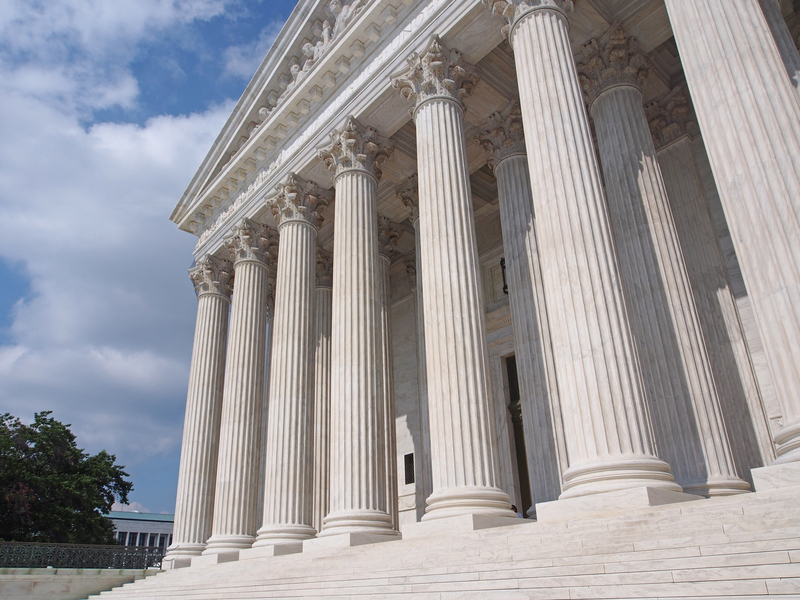
About This Blog
Noonan’s Notes Blog is written by a team of Hodgson Russ tax attorneys led by the blog’s namesake, Tim Noonan. Noonan’s Notes Blog regularly provides analysis of and commentary on developments in the world of New York and multistate tax law. Noonan's Notes Blog is a winner of CreditDonkey's Best Tax Blogs Award 2017.
Contributors
Timothy Noonan
Brandon Bourg
Mario Caito
Ariele Doolittle
Joseph Endres
Daniel Kelly
Elizabeth Pascal
Emma Savino
Joseph Tantillo
Craig Reilly
Andrew Wright
Stay Connected
 Joseph N. Endres
Joseph N. Endres
Showing 13 posts by Joseph N. Endres.
Upcoming Abandoned Property Deadlines
Just a friendly reminder that the first deadline for New York’s annual abandoned property due diligence mailings is quickly approaching. Here’s a quick recap of the deadlines and the rules governing New York’s abandoned property law.
If you’re a holder of abandoned property, you must file an annual report detailing the property and must remit the property to the state. A “holder” of abandoned property is any organization that possesses property legally owned by another. Most businesses hold some form of abandoned property whether they know it or not.
Taxing Cloud Computing: New York Gets It Half Right
 The term “cloud computing” is broad enough to cover a vast array of transactions, all of which use the Internet in some fashion. Two of the most prevalent forms of cloud computing are “software as a service” (SaaS) and “infrastructure as a service” (IaaS). SaaS refers to transactions where software is accessed by a customer remotely over the Internet. The customer does not receive a copy of the software, and the software does not reside on the customer’s hardware. Rather, the customer gains access to the software typically by using its own Internet browser. IaaS refers to transactions where a customer remotely accesses hardware over the Internet. The customer never takes physical possession of the hardware. Rather, the customer accesses the service provider's hardware instead of purchasing and maintaining its own hardware.
The term “cloud computing” is broad enough to cover a vast array of transactions, all of which use the Internet in some fashion. Two of the most prevalent forms of cloud computing are “software as a service” (SaaS) and “infrastructure as a service” (IaaS). SaaS refers to transactions where software is accessed by a customer remotely over the Internet. The customer does not receive a copy of the software, and the software does not reside on the customer’s hardware. Rather, the customer gains access to the software typically by using its own Internet browser. IaaS refers to transactions where a customer remotely accesses hardware over the Internet. The customer never takes physical possession of the hardware. Rather, the customer accesses the service provider's hardware instead of purchasing and maintaining its own hardware.
The Supreme Court Declares Maryland Resident Tax Credit Structure Unconstitutional Because It Leads to Double Tax
 On May 18, 2015, the U.S. Supreme Court declared Maryland's resident tax credit structure unconstitutional because it subjected income earned outside the state to potential double taxation. The Supreme Court concluded in a 5 to 4 decision in Comptroller of the Treasury of Maryland v. Wynne that this structure impermissibly favored income earned within Maryland over income earned outside the state. According to the court, this effectively created a tariff that violated the dormant Commerce Clause of the U.S. Constitution.
On May 18, 2015, the U.S. Supreme Court declared Maryland's resident tax credit structure unconstitutional because it subjected income earned outside the state to potential double taxation. The Supreme Court concluded in a 5 to 4 decision in Comptroller of the Treasury of Maryland v. Wynne that this structure impermissibly favored income earned within Maryland over income earned outside the state. According to the court, this effectively created a tariff that violated the dormant Commerce Clause of the U.S. Constitution.
Here's a quick review of the facts of the case. Brian and Karen Wynne are Maryland residents. Like most states, Maryland taxes residents on their worldwide income regardless of its source. In other words, Maryland residents can pay tax on income earned outside Maryland. In 2006, Brian Wynne owned stock in a Subchapter S corporation that operated and earned income in other states. In fact, the S corporation filed income tax returns in 39 states. The Wynnes reported the income that flowed through to them from the S corporation on their Maryland income tax returns but also claimed an income tax credit for taxes paid to other states. Almost every state tax code contains a similar credit. These credits are designed to avoid double taxation and to allow for the proper allocation of the tax burden to the jurisdiction where the income was earned.
The problem in the case arose because Maryland imposed two taxes, a state tax and a county tax. Despite imposing two taxes, the Maryland credit for taxes paid to other states only applied to the state tax, not the county tax. Thus, the Wynnes ended up being double taxed on the S corporation income. They paid tax to the states where the income was earned, and they paid the Maryland county tax on the same income. According to the Supreme Court, this scheme violated the dormant Commerce Clause of U.S. Constitution.
This case is notable for several reasons:






